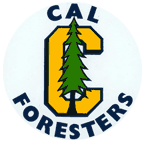- About
- Meeting Notes
- April 19th, 2017 Minutes
- April 12th, 2017 Minutes
- April 5th, 2017 Minutes
- March 22nd, 2017 Minutes
- March 15th, 2017 Minutes
- March 8th, 2017 Minutes
- March 1st, 2017 Minutes
- February 22nd, 2017 MInutes
- February 15, 2017 Minutes
- February 8th, 2017 Minutes
- February 1st, 2017 MInutes
- January 25th, 2017 Minutes
- January 18th, 2017 Minutes
- November 30th, 2016 Minutes
- October 26th, 2016 Minutes
- October 19th, 2016 Minutes
- October 12th, 2016 Minutes
- October 5th, 2016 Minutes
- September 28th, 2016 Minutes
- September 21st, 2016 Minutes
- September 14th, 2016 Minutes
- September 7th, 2016 Minutes
- Past Meeting Notes (Fall 2006-Spring 2016)
- September 6th, 2017 Minutes
- August 30th, 2017
- Events
- Cal Logging Sports
- Merchandise
- Links
Forestry Field Camp
The UC Forestry Summer Field Camp at Baker Forest provides Cal students with an unique opportunity to learn about forestry and resource management. Students spend eight weeks in the Plumas National Forest immersed in topics ranging from wildland ecology, forest, range and wildlife management, forest resource inventory, forest products and harvesting practices, and many other subjects. The camp provides students with an opportunity to clocsely interact with faculty outside of the classroom environment, live in a beautiful forest and forge life-long friendships. The enthusiasm for the program can be seen by the great turnouts at the annual alumni weekend held the first weekend of camp. Accommodations consist of a number of 10-person (two people per room) dormitories. Rustic two-person cabins are also available. Meals are provided by a cook and staff.
For more information and applications visit U.C. Forestry Summer Field Camp.
Coursework
ESPM 105A, Sierra Nevada Ecology (4 credits, 3 weeks). Prerequisites: 8 units of biological science or consent of instructor. Includes Saturday sessions. Ecology of forests, mountain meadows, montane chaparral, and riparian zones of the Northern Sierra Nevada. Major emphasis on ecology as a basis for resource management and the maintenance of biological diversity.
ESPM 105B, Forest Measurements (1 credit, 1 week). Prerequisite 105A. This course teaches students how to use common forestry tools, maps, and various sampling methods to collect information about the forest environment. Thirty percent of the time is spent in the classroom learning about the techniques and working up field data. The remaining time is spent in the field applying these techniques in real world settings. Skills taught will include tree and plot measurement procedures, map reading, and simple field orienteering principles.
ESPM 105C, Silviculture and Utilization (3 credits, 2 weeks). Prerequisites: ESPM 105A, B. Introduction to silvicultural theory, forest operations, and utilization and manufacture of forest products. Evaluation of silviculture for managing forest stands for multiple objectives including regeneration, stand density control, forest growth, genetic improvement, and prescribed burning. Introduction to harvest and access systems, wood structure and quality, and manufacture of forest product. Field trips and lectures to local areas illustrating different approaches to forest problems.
ESPM 105D, Forest Management and Assessment (3 credits, 2 weeks). Prerequisite ESPM 105A, B, C. Develop skills in evaluating forests and developing management strategies to meet ownership objectives. Develop integrated forest management plan for 160 acre parcel. During first week, inventory and assess ecological condition of the assigned parcel. During second week, develop comprehensive integrated forest resource plan, integrating water, wood, wildlife, range, fisheries, and recreation. Oral reports in both an office and field setting required and written management plan.

